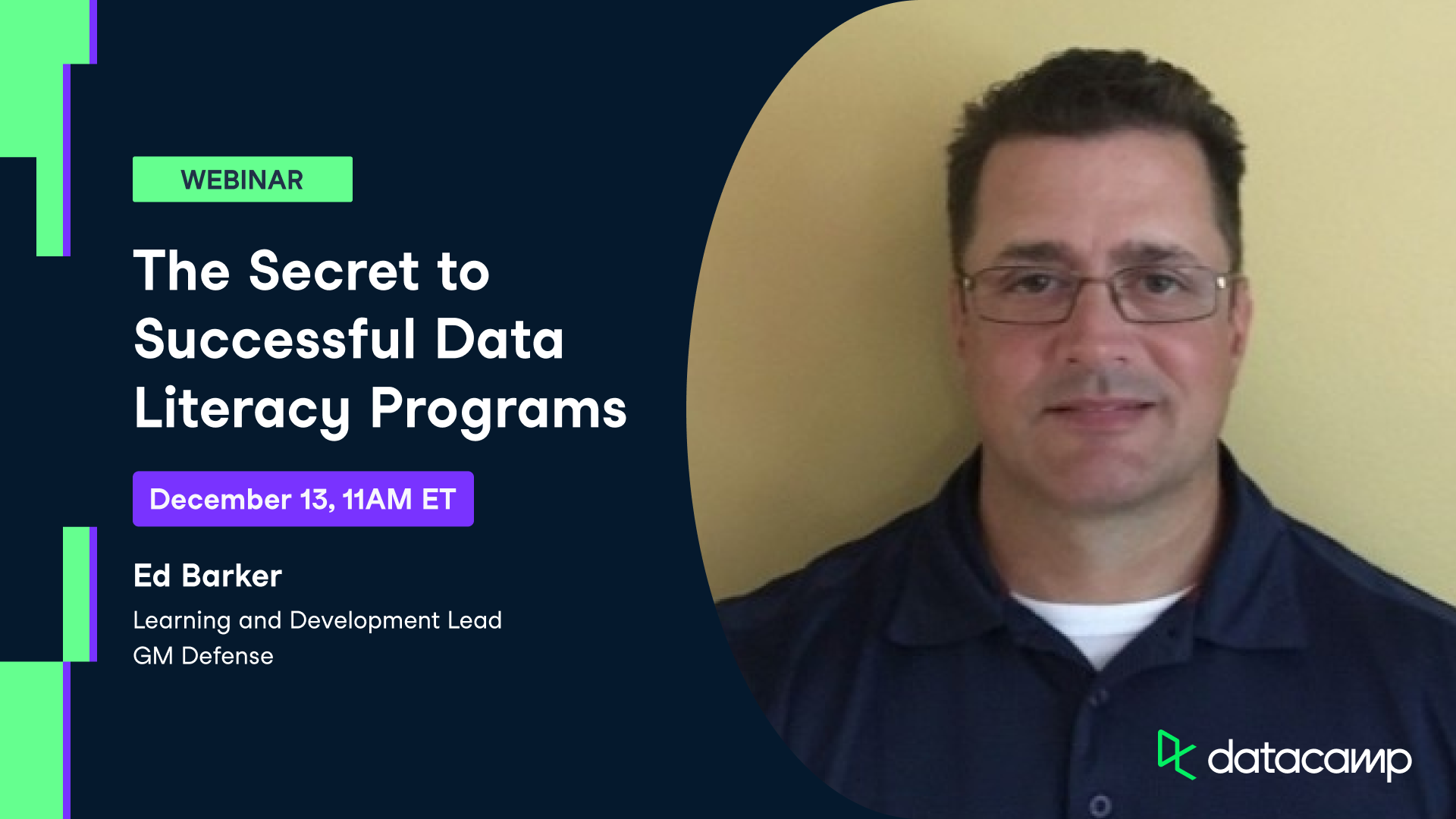Direkt zum InhaltWeitere Informationen





Lautsprecher
Trainierst du 2 oder mehr?
Erhalten Sie für Ihr Team Zugriff auf die vollständige DataCamp-Bibliothek mit zentralisierten Berichten, Zuweisungen, Projekten und mehrVerwandt
webinar
Getting ROI From Your Data Literacy Program
In this session, two seasoned Data Literacy executives walk you through a proven model for scaling data literacy that unlocks business value as your people learn new skills.webinar
Scaling Data Literacy in Government
In this webinar, Essex County Council present the story of how they implemented a comprehensive data training program across their organization - from new graduates to senior leaders.webinar
Inside CBRE’s Data Literacy Program
See how effective change management can help scale your data literacy programwebinar
Unlocking Data Cultures: Empowering People Through Data Literacy Programs
In this session, Tom Redman and Mai AlOwaish discuss the role people and data culture play in achieving true data transformation within organizations.webinar
Data Chaos to Data Maturity: Implementing a Data Literacy Program
From Data Chaos to Data Maturity: Implementing a Data Literacy Programwebinar
How L&D Leaders are Shaping Data Literate Workforces
Successful data literacy upskilling programs from a variety of industriesJoin 5000+ companies and 80% of the Fortune 1000 who use DataCamp to upskill their teams.
Loved by thousands of companies

